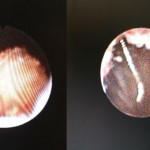Trustworthy ‘Rapid Recommendations’ for Urology
BJU International has a longstanding track record of promoting the principles of evidence-based clinical practice to an international audience of urologists. Recent initiatives include the “guidelines of guidelines” series which appraises and contrasts clinical practice guidelines from different professional organizations on the same topic, for example on microscopic hematuria and non-muscle-invasive bladder cancer. It also co-publishes high quality, urology-relevant guidance by the UK’s National Institute for Health and Care Excellence (NICE), for example on the preoperative testing for elective surgery (https://www.bjuinternational.com/learning-2/urology-guidelines/nice-guidance-routine-preoperative-tests-elective-surgery/).
In collaboration with the MAGIC research and innovation program (www.magicproject.org), BJU International has published its first Rapid Recommendation guidance document on the use of medical expulsive therapy (MET) with alpha-blockers that was triggered by the recent rigorous Cochrane review on the same topic. Its purpose is to provide trustworthy, timely and practical guidance on this topic based on the entire body of evidence, given several recently published trials with contradictory findings. To develop this trustworthy guidance, an international team that included patients with a personal history of ureteral stones, general practitioners (GPs), emergency clinicians, urologists familiar with treating renal colic, epidemiologists, and methodologists followed a rigorous and transparent GRADE-based process in accordance with The National Academy of Science, Engineering and Medicine (formerly: Institute of Medicine) (https://www.nationalacademies.org/hmd/Reports/2011/Clinical-Practice-Guidelines-We-Can-Trust/Standards.aspx) standards for trustworthy guidelines. Panel member had no financial conflicts of interest and intellectual and professional conflicts of interests were described and carefully minimized. All meetings were conducted by web conference and the process was completed within 90 days of publication of the Cochrane review, which is co-published in BJU International in this same issue.
Initially pioneered in collaboration with the BMJ for questions of broader interest (https://www.bmj.com/rapid-recommendations) such as the use of corticosteroids for the treatment of a sore throat, this Rapid Recommendation breaks new ground for evidence-based guidance in urology, complementing the efforts by professional organizations such as the European Association of Urology (EAU) and American Urological Association (AUA). Rapid Recommendations stand out for their focus on patient-important outcomes, the use of an explicit and transparent process for moving from evidence to recommendations and its timely development process. Rapid Recommendations provide actionable guidance as well as information on the underlying evidence and supporting judgments that are summarized in an infographic that is easily understood by patients. The Rapid Recommendation on MET is intended to be the first of many to help inform patients, providers and policy-makers but also to seeks to provide a strong impetus for more trustworthy and useful guidelines in urology in general.
By Philipp Dahm1 2 and Per Olav Vandvik3 4 5
1 Minneapolis VA Medical Center, Urology Section, Minneapolis, MN, USA
2 University of Minnesota, Department of Urology, Minneapolis, MN, USA
3 Norwegian Institute of Public Health, Oslo, Norway
Disclosures:
Philipp Dahm serves as Coordinating Editor of Cochrane Urology, is member of the GRADE Working Group and served as a panel member of this Rapid Recommendation project
Per Olav Vandvik is member of the GRADE Working Group, is the leader of the MAGIC Foundation and BMJ Rapid Recommendations project and served as a panel member of this Rapid Recommendation project.




